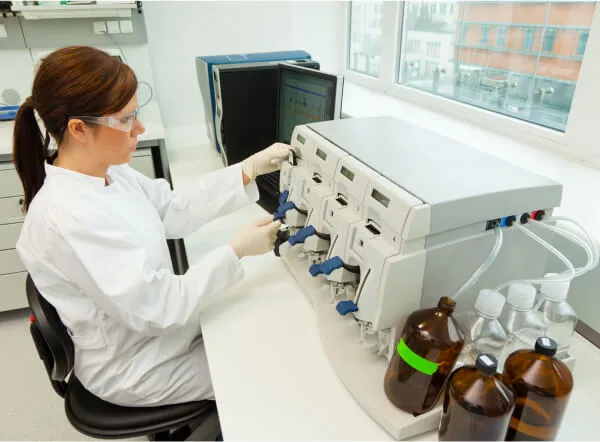Plant Biology

Explore the undergraduate and graduate degrees you could pursue in plant biology. Get info about job options in this field, such as plant science or botany, and review the job duties, career outlook and salary potential for these positions.
<h2 id="section---IsPlantBiologyForMe">Is Plant Biology for Me?</h2>
<h3 id="section---CareerOverview">Career Overview</h3>
<p>Plant biology is a <a href="https://learn.org/articles/Biological_Science_Degree_Programs_Answers_to_Your_Questions.html">biological science</a> in which you study the composition of plant life. In a plant biology degree program, you'll examine plant anatomy, structure, function, molecular biology and evolution, as well as botany. The role of the <a href="https://learn.org/articles/Plant_Scientist_Frequently_Asked_Career_and_Salary_Questions.html">plant scientist</a>, or botanist, varies. For instance, you may perform research on plants to help develop hardy, high-yield agricultural crops, or you may work in the pharmaceutical industry in the development of new medications.
</p>
<h3 id="section---JobOptions">Job Options</h3>
<p>A bachelor's degree may prepare you for work as a teacher, technician or research assistant. However, many research positions will require a master's degree or a doctorate (Ph.D.), and opportunities are greater if you hold an advanced degree. As a plant biologist, you may work in areas such as agribusiness, <a href="https://learn.org/articles/What_is_Plant_Biotechnology.html">plant biotechnology</a> or environmental science. You may work in a lab researching complex issues, such as how to turn plants into biofuels. Alternatively, you may be a <a href="https://learn.org/articles/Field_Biologist_Your_Career_and_Salary_Questions_Answered.html">field biologist</a> working in forests or other wildland areas. Opportunities may also be found in <a href="https://learn.org/articles/What_are_Some_Popular_Careers_in_Horticulture.html">horticulture</a> and <a href="https://learn.org/articles/Plant_Breeding_Degrees_and_Courses_Answers_to_Your_Questions.html">plant breeding</a>.
</p>
<h3 id="section---SalariesAndEmploymentOutlook">Salaries and Employment Outlook</h3>
<p>The U.S. Bureau of Labor Statistics (BLS) reported that as of May 2012, plant scientists had a median annual wage of $58,740 (<i>www.bls.gov</i>). Employment of soil and plant scientists was projected to grow 8% in the 2012-2022 decade. While the BLS doesn't have specifics on botanists, <i>Payscale.com</i> reported that as of March 2014, most botanists earned between $23,672 and $85,005 annually.
</p>
<h2 id="section---HowCanIWorkInPlantBiology">How Can I Work in Plant Biology?</h2>
<h3 id="section---UndergraduateEducation">Undergraduate Education</h3>
<p>An undergraduate <a href="https://learn.org/articles/Botany_Degree_Programs_and_Colleges_Your_Questions_Answered.html">degree program in botany</a> or plant biology typically stresses basic research and the exploration of plant functions, development and evolution, as well as exploring the relationship between plants and man. You may take classes in chemistry, physics and mathematics. Additionally, you'd take botany core courses that generally include biochemistry, genetics, evolution and ecology. You'll also work with plants to gain hands-on laboratory experience.
</p>
<h3 id="section---GraduatePrograms">Graduate Programs</h3>
<p>Plant biology graduate degree programs generally require research concentrations in areas such as cell and developmental biology, systematics and evolution biology, environmental biology, molecular biology, biochemistry, genetics and ecological biology. Ph.D. coursework generally includes lab rotations and courses in plant biochemistry, plant development, molecular systematics and phylogenetic systematics. Additionally, you'd usually spend time as a teaching assistant to gain teaching experience. A written dissertation would also typically be required.</p>


.svg)